| Resources and Publications |
|
Resources:
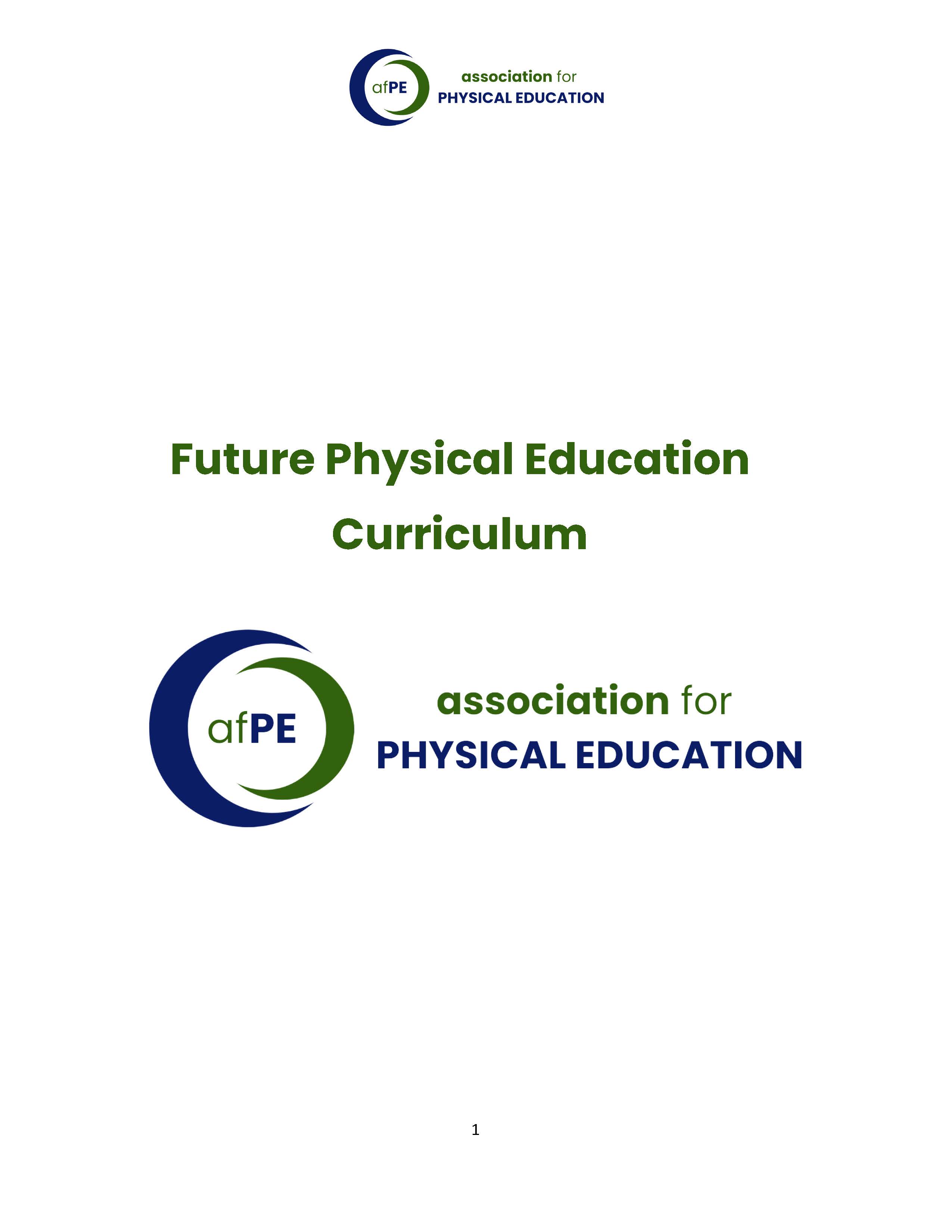 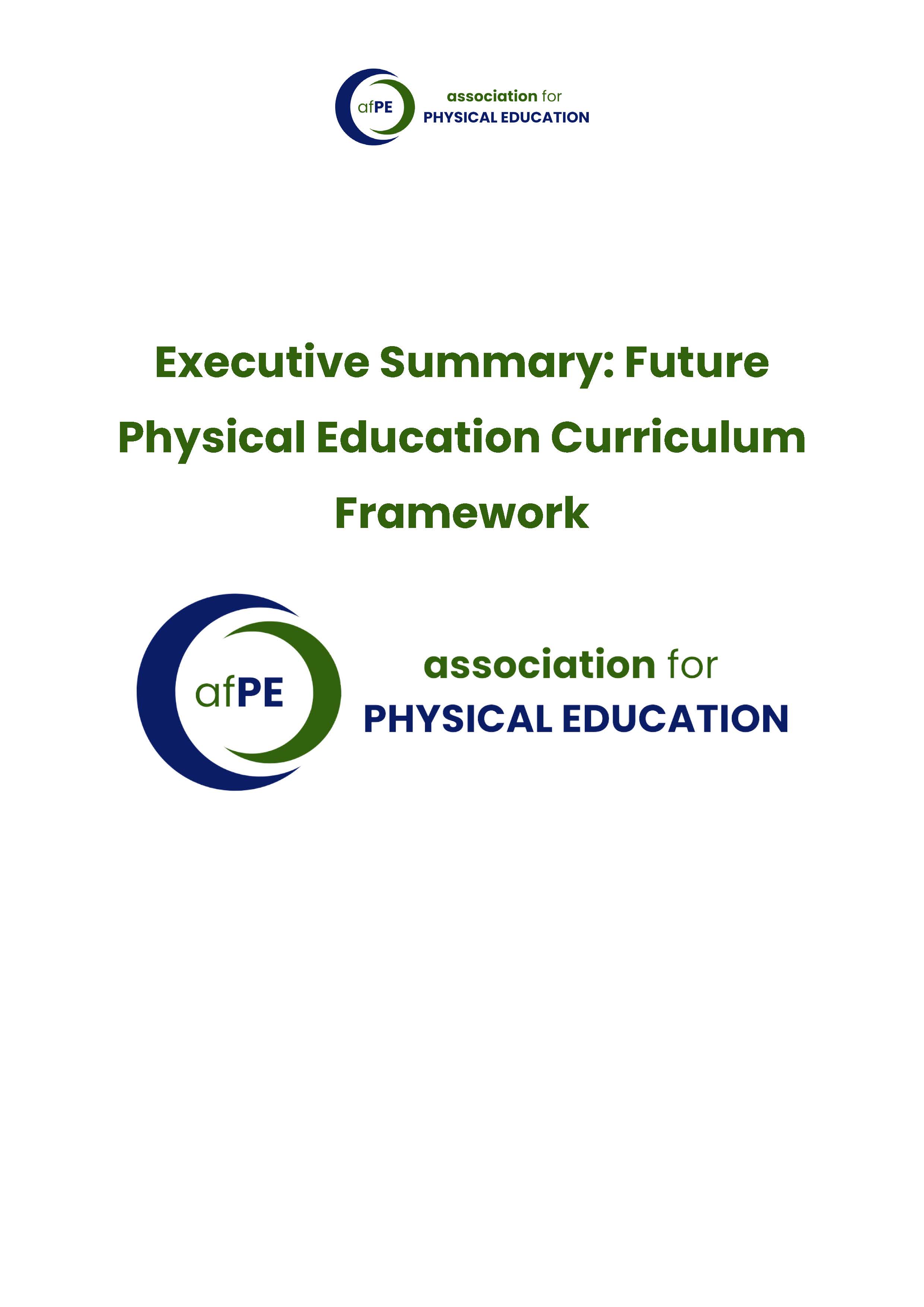 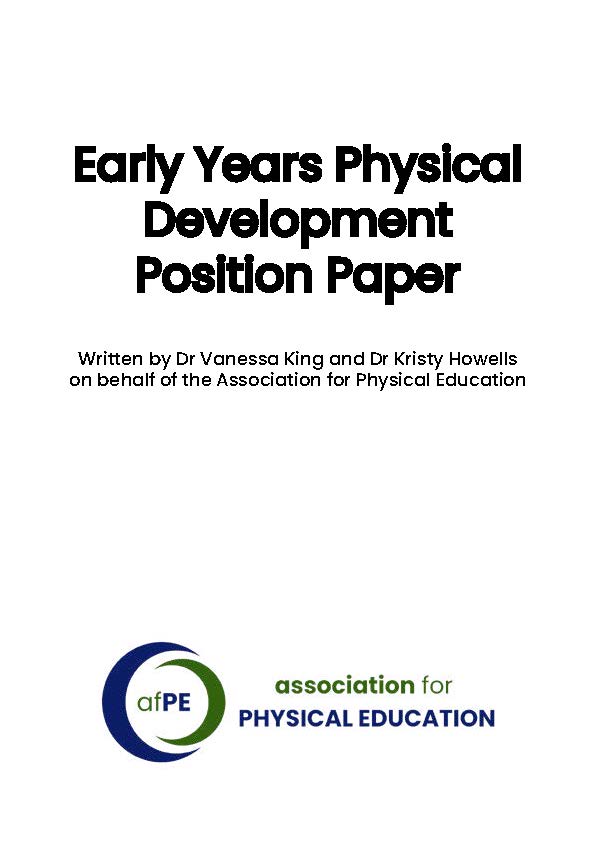 Future Physical Education Curriculum Paper This curriculum framework paper emanates from the Association for Physical Education’s Future PE Curriculum Position Paper which presented the rationale for a transformed and transformational PE curriculum. This paper refers to numerous key terms such as health, wellbeing, physical education, physical literacy and sport.
Executive Summary: Future Physical Education Framework Paper
Early Years Physical Development Position PaperThe first five years of a child's life are a time of rapid brain development, when the connection of the brain with the body in response to movement stimuli occurs at a quicker rate than at any other age in the lifespan. During this time, children should be exposed to enriching movement opportunities that stimulate neurological development and connect rich neurological pathways so that they learn to move confidently and competently.
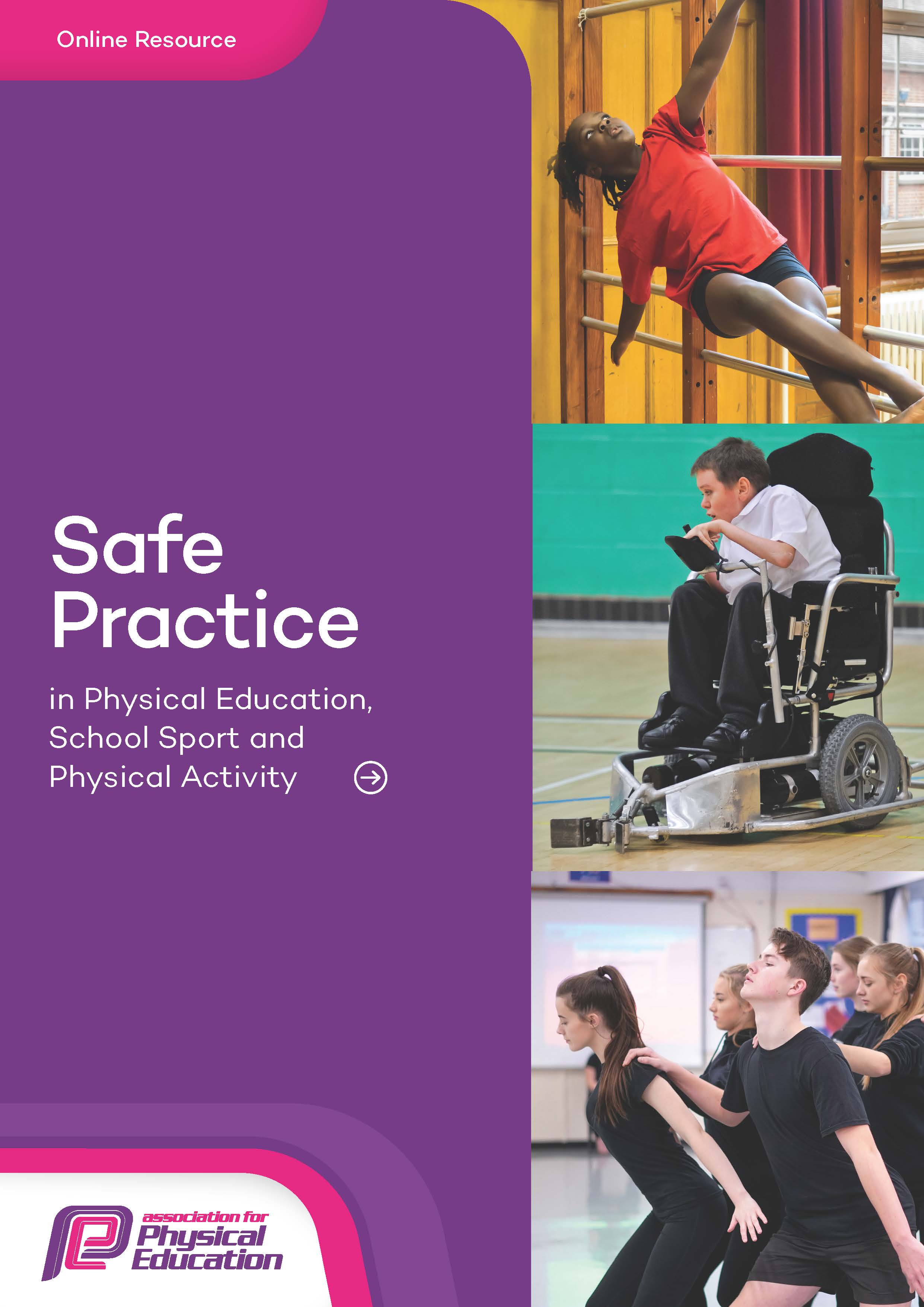 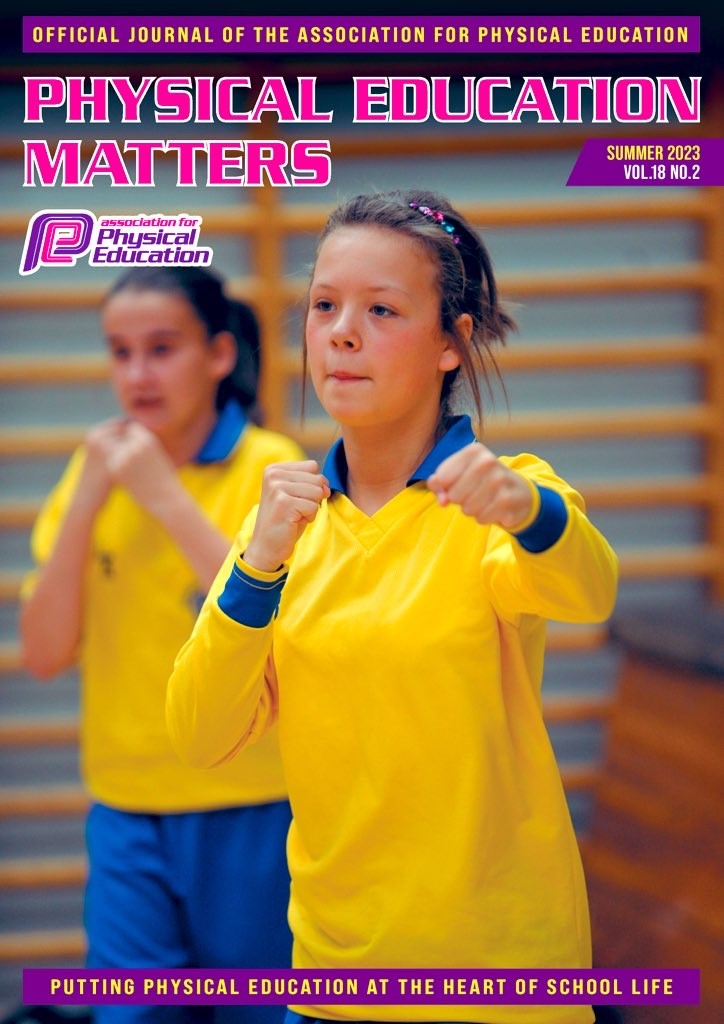 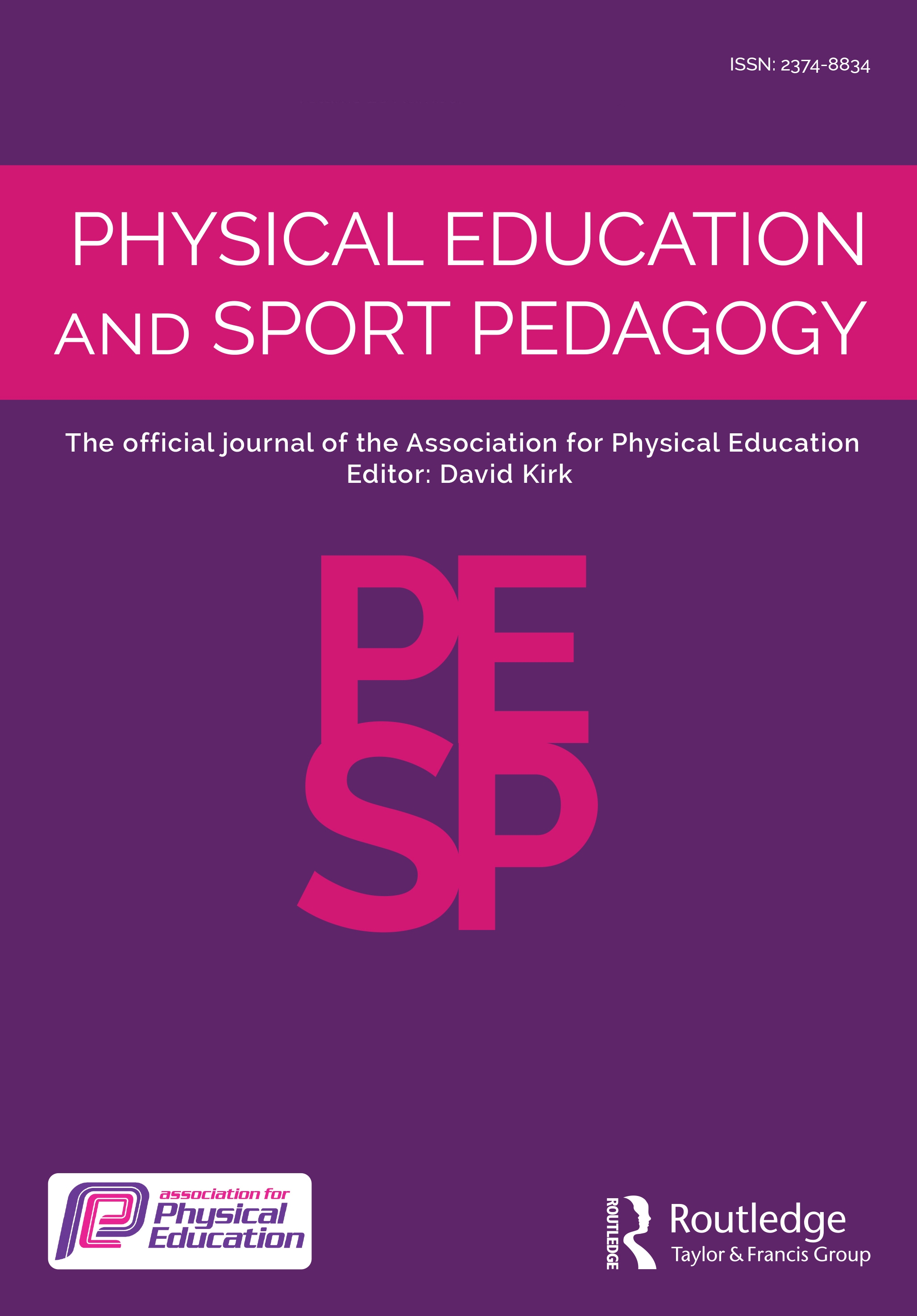 Safe Practice in Physical Education, School Sport and Physical Activity The Top-Selling Resource in PESSPA! Updated termly, this essential reference offers the latest guidance to safeguard students and staff in both curricular and extracurricular activities. Here’s why you need it:
Physical Education Matters
'Physical Education Matters' is
afPE's termly member journal and one of the key benefits of membership. The full online archive of Physical Education Matters is available to view via the Members’ Area of
the website. Physical Education and Sport Pedagogy
'Physical Education and Sport Pedagogy' (PESP) is afPE's peer reviewed research journal. It promotes the communication of educational research in physical education and youth sport and related fields such as teacher and coach education. The full online archive of PESP is available to view via the Members’ Area of the website (for those members who subscribe to receive it). The cost is
£65 for a year (6 issues). 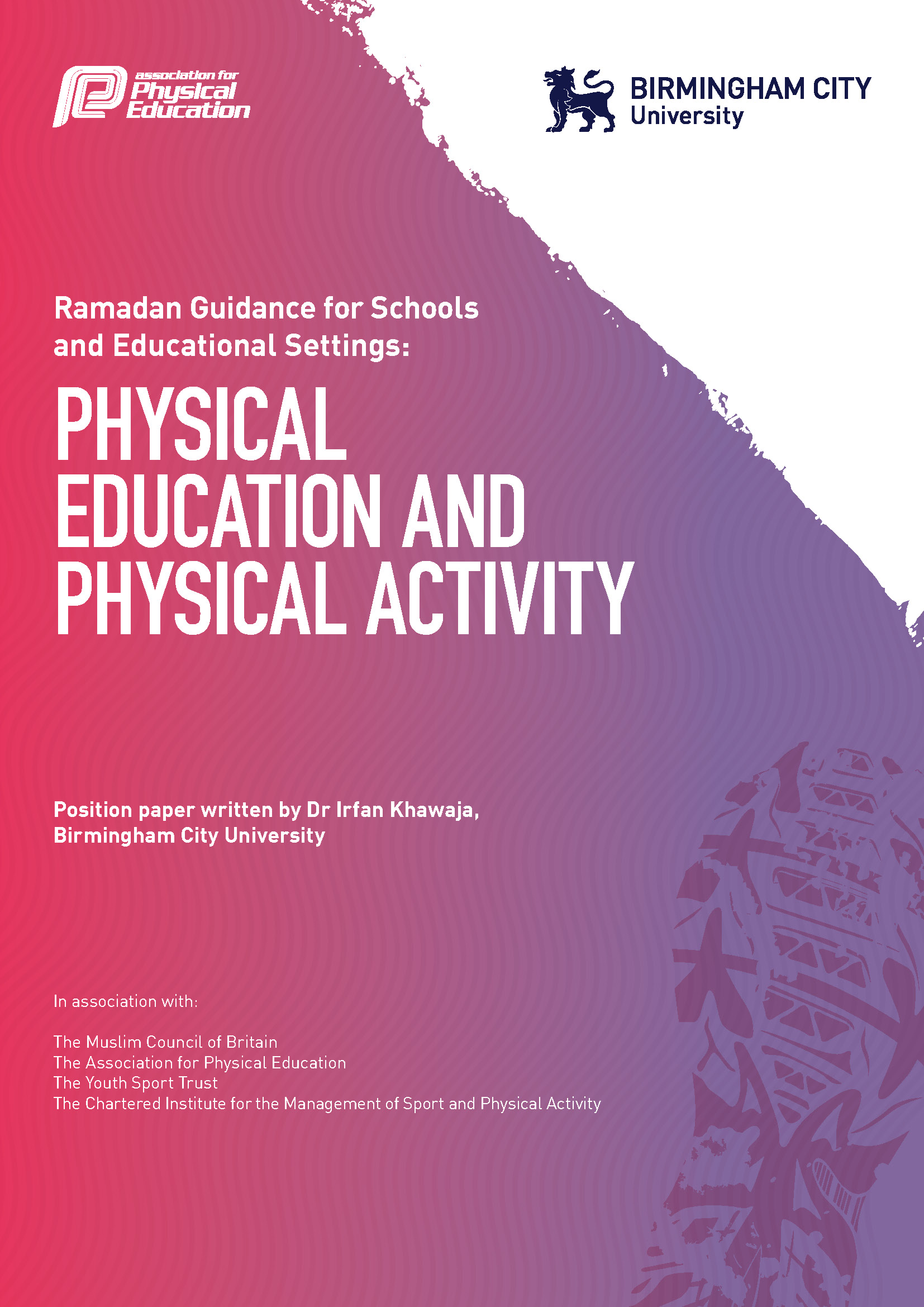 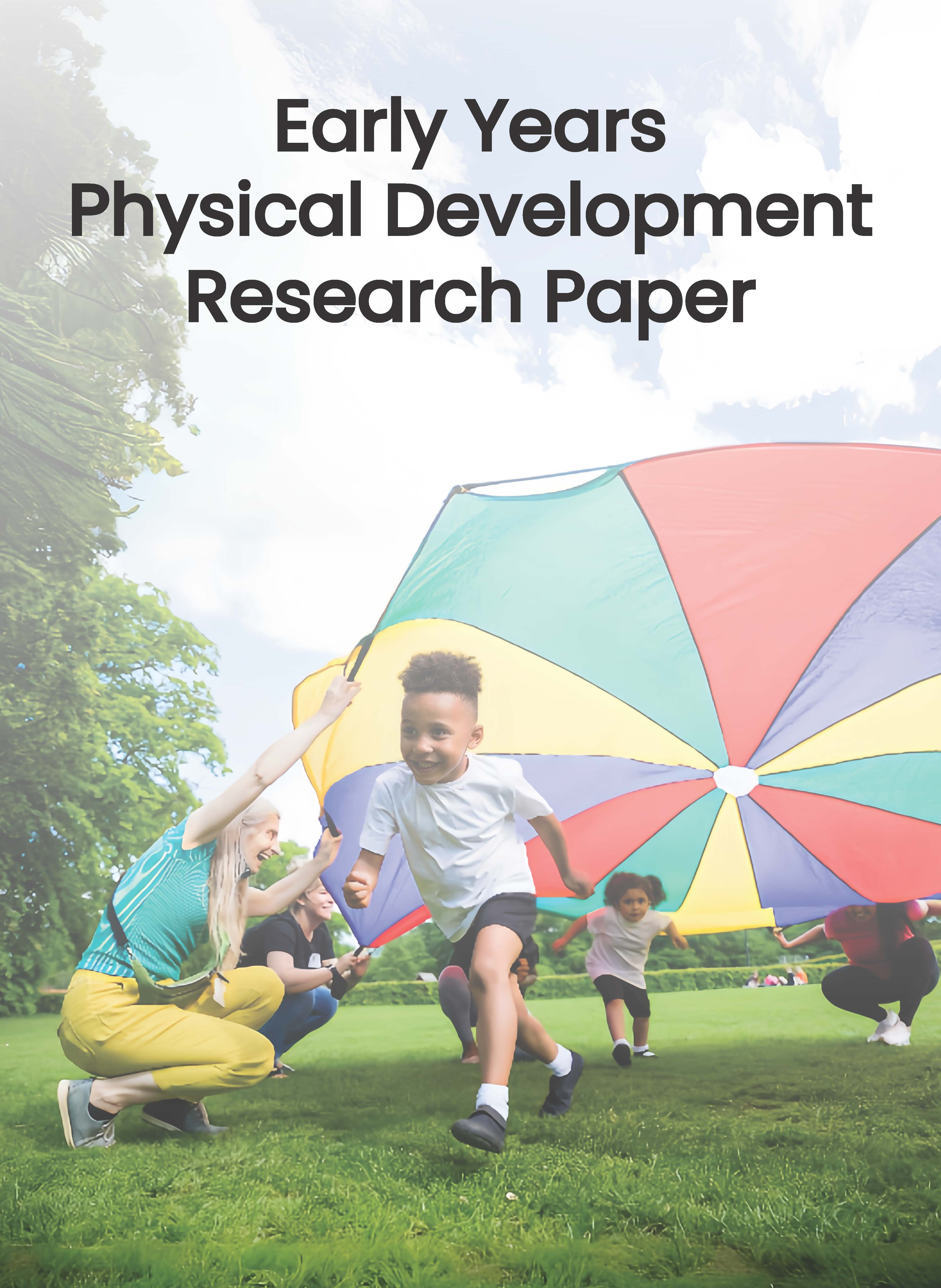
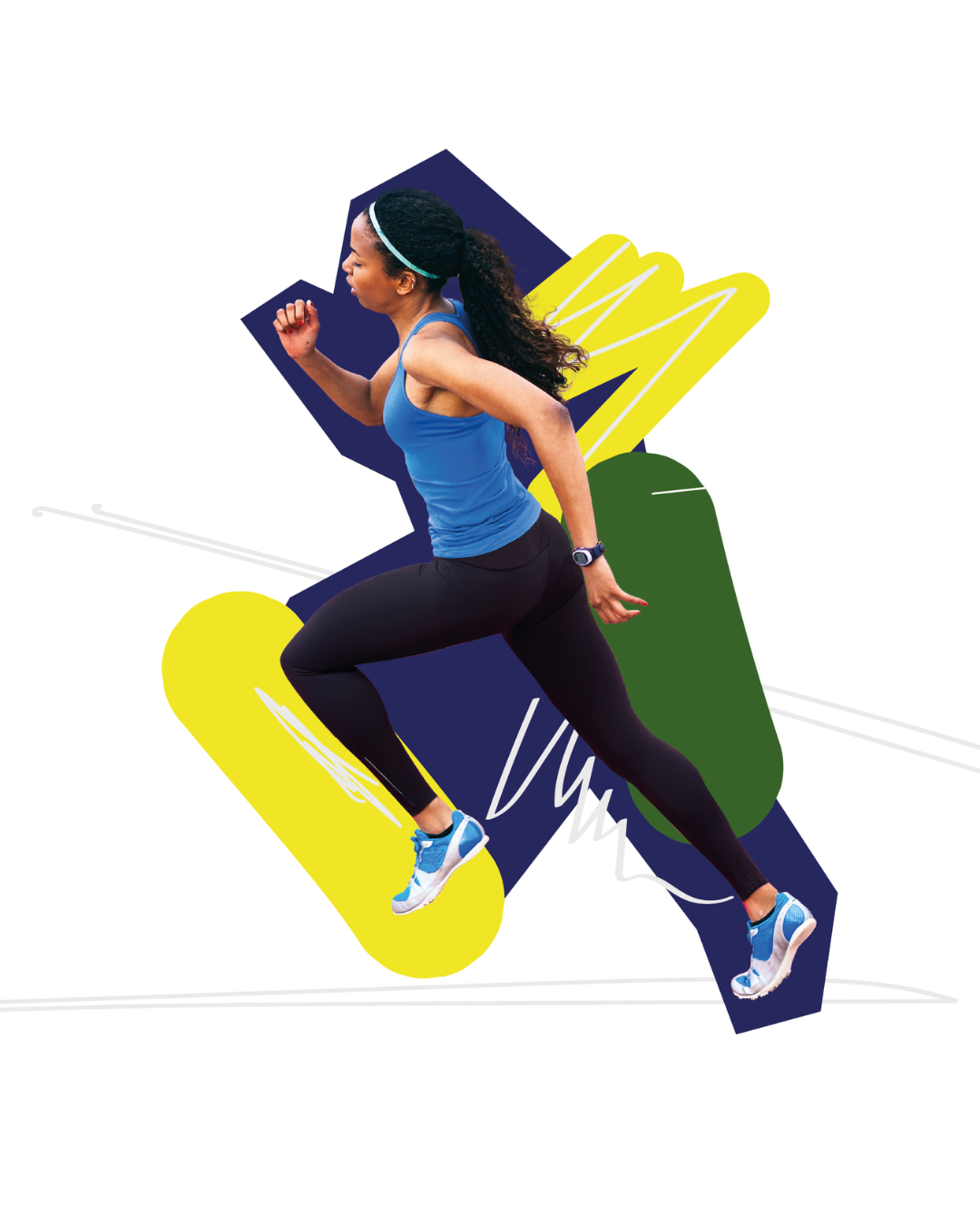 Ramadan Guidance for Schools and Educational Settings: Physical Education and Physical Activity Ground-breaking Ramadan guidance developed by Dr Irfan Khawaja at Birmingham City University (BCU) will help create a more inclusive school environment for Muslim students and staff engaging in physical education (PE) during Ramadan. Thought to be the first of its kind in the United Kingdom to support curriculum and extra-curricular PE, the guidance gives schools practical advice for supporting fasting Muslim students and staff during Islam’s Holy Month so they can continue to participate in physical activity. Early Years Physical Development Research Paper
This paper presents national and international research evidence on early years physical development, motor competency, play and physical activity. It highlights the importance of early years settings as the key place to support early movement, and of early years practitioners who are critical to enabling movement opportunities as part of children’s learning. Children can spend half of their waking hours within early years settings, therefore early years education is a key place to enable habit forming behaviour and develop excitement for movement. Download Your Copy
Your Body, Your Journey Toolkit
A toolkit designed for educators to address the challenges faced by teenage girls in PE. Download Your Copy Posters/Leaflets:
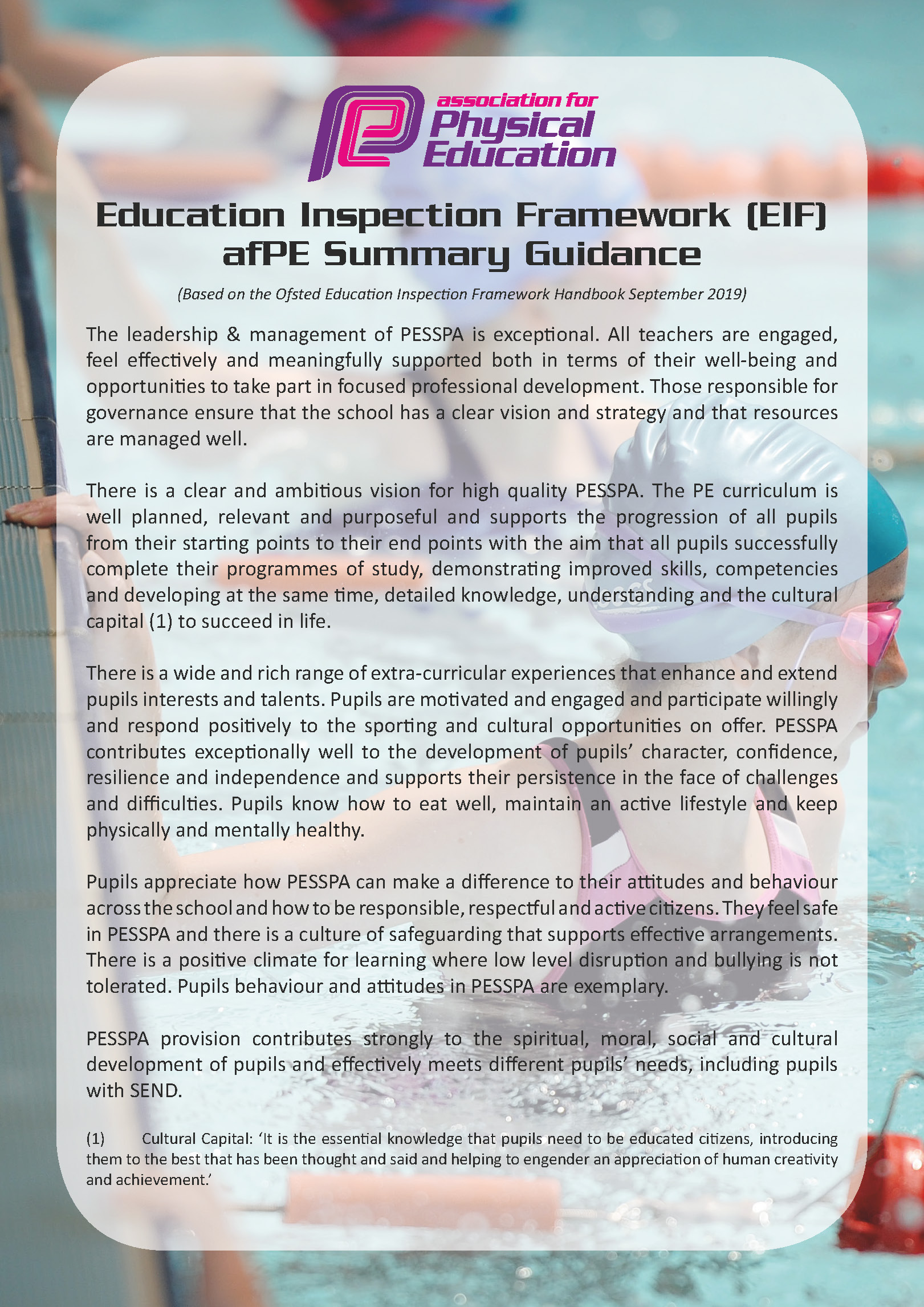 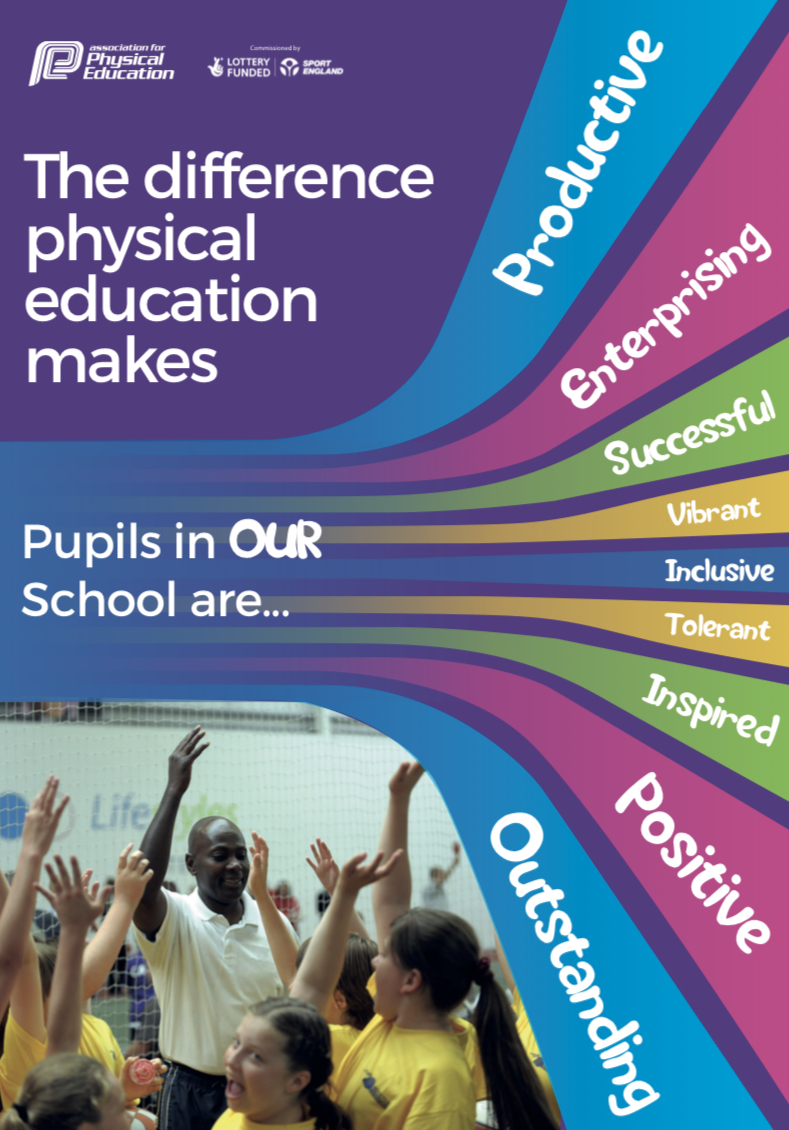 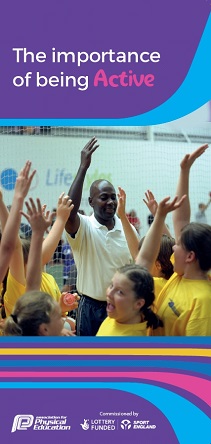  Summary Guidance: Education Inspection Framework
afPE has produced a guidance document which highlights outstanding PESSPA provision in 290 words. The Difference PE Makes Poster
This poster highlights the positive impact that quality physical education can make to the pupils in your school. Please display the poster in a prominent location within your school. The Importance of Being Active Flyer for Parents & Carers
afPE has created an information leaflet specifically for parents/carers outlining the importance of children and young people being active. 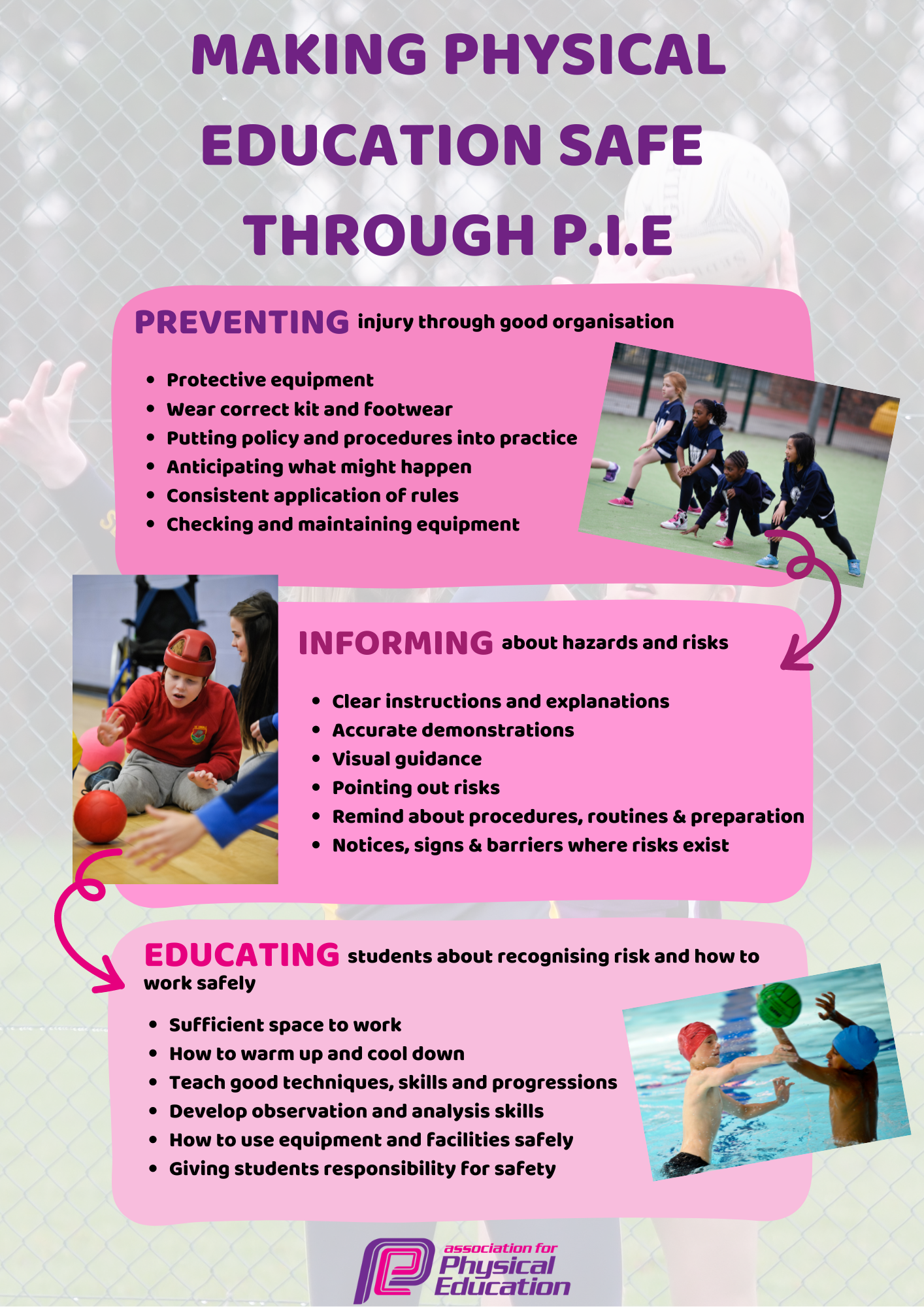 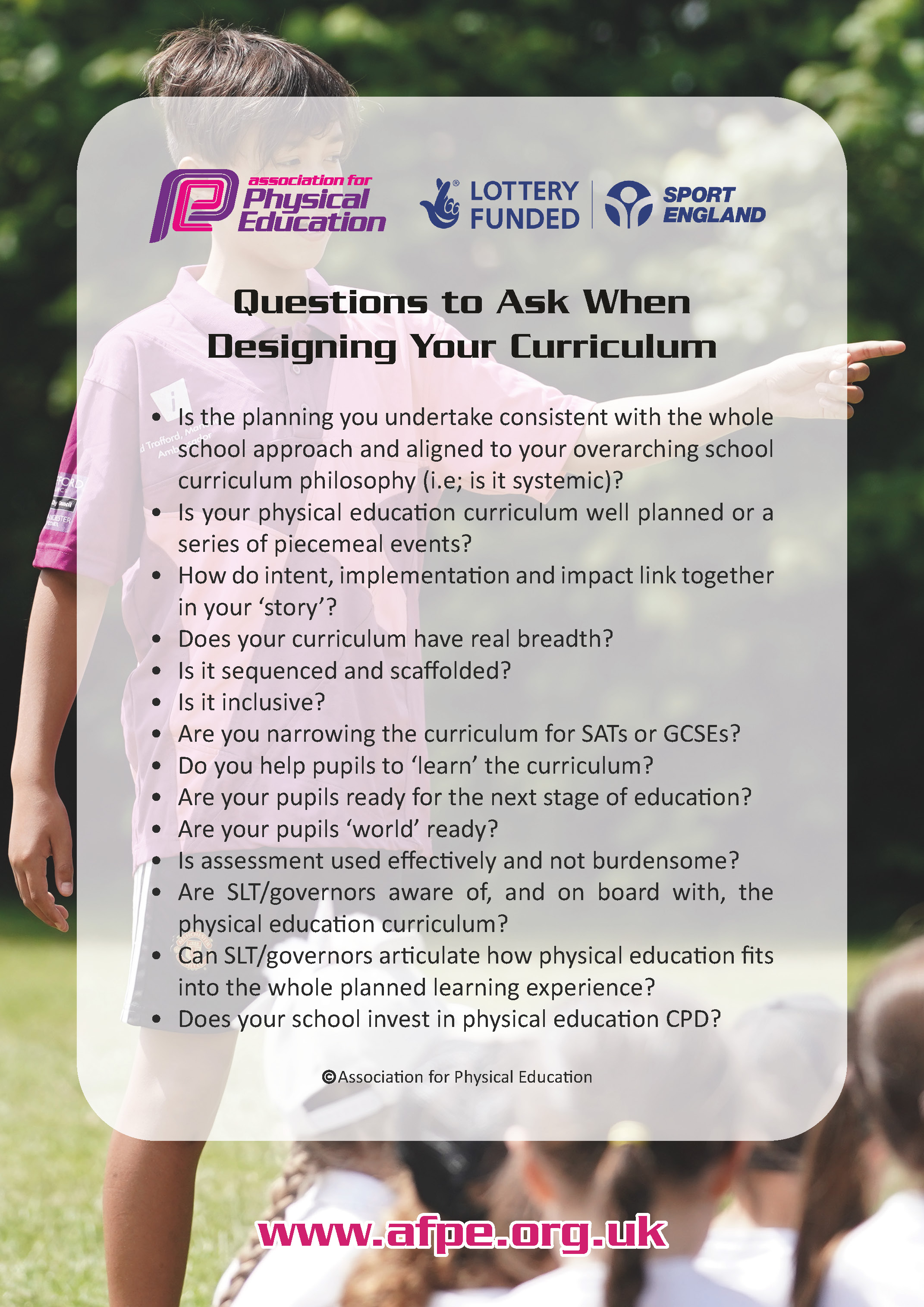  PIE Poster
How to make Physical Education safe through prevention of injury through good organisation, informing students & staff about hazards and risks and educating students about recognising the risks and how to work safely. Questions to Ask When Designing Your Curriculum
This resource can be used to help your thinking around the quality of your curriculum. It is a series of questions which can be used to help inform the debate within your own planning teams as you design or re-design your own curriculum. 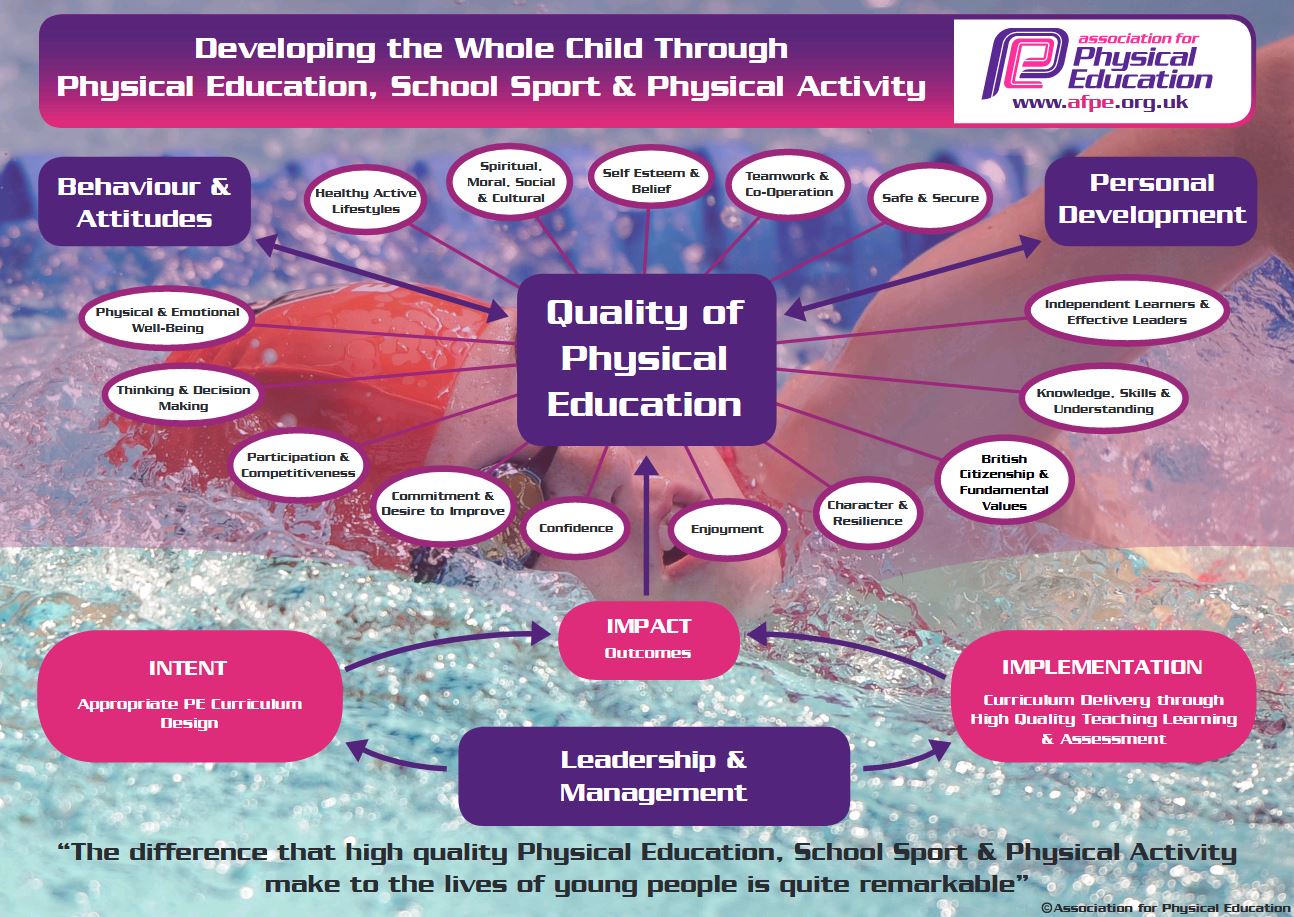 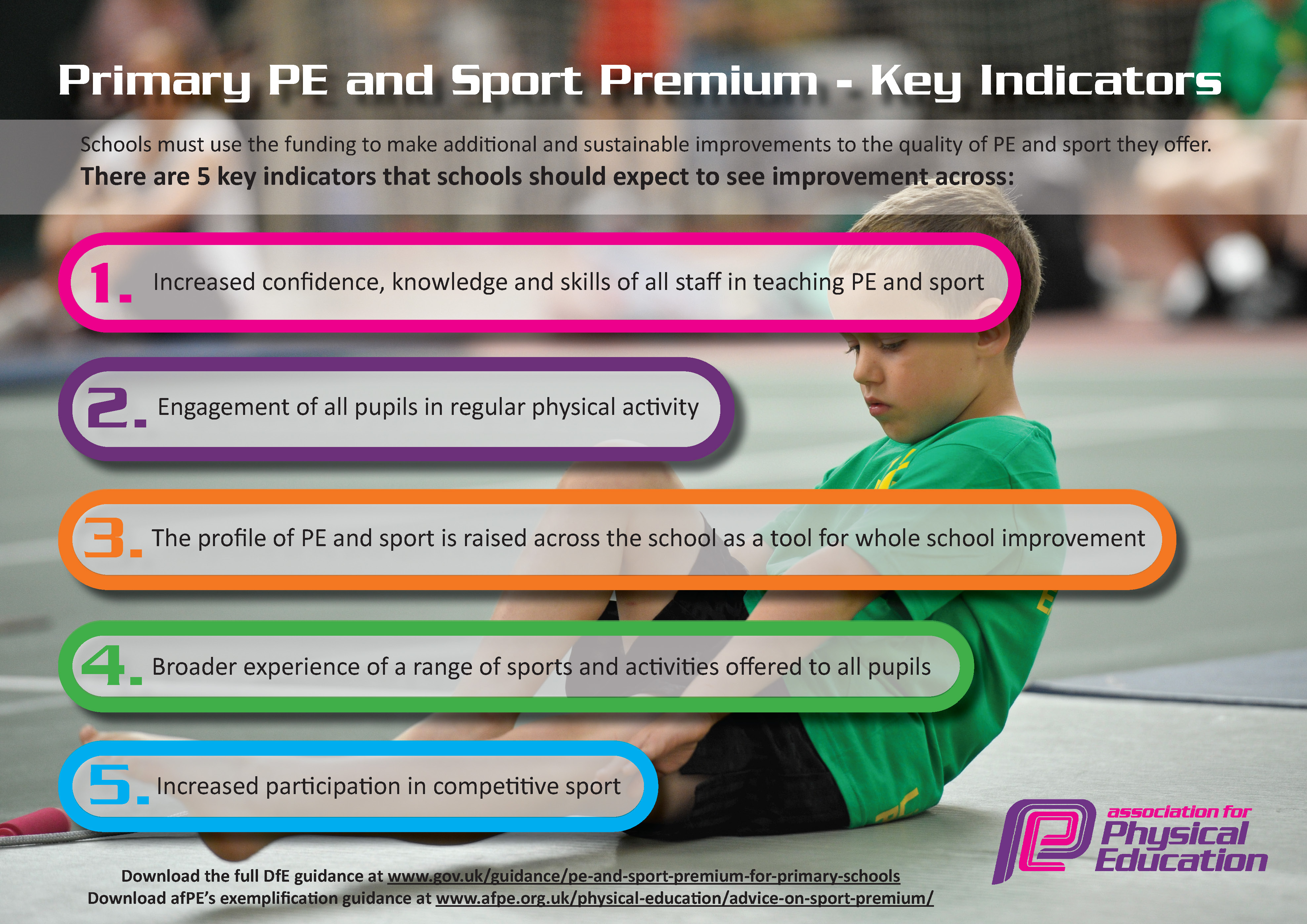 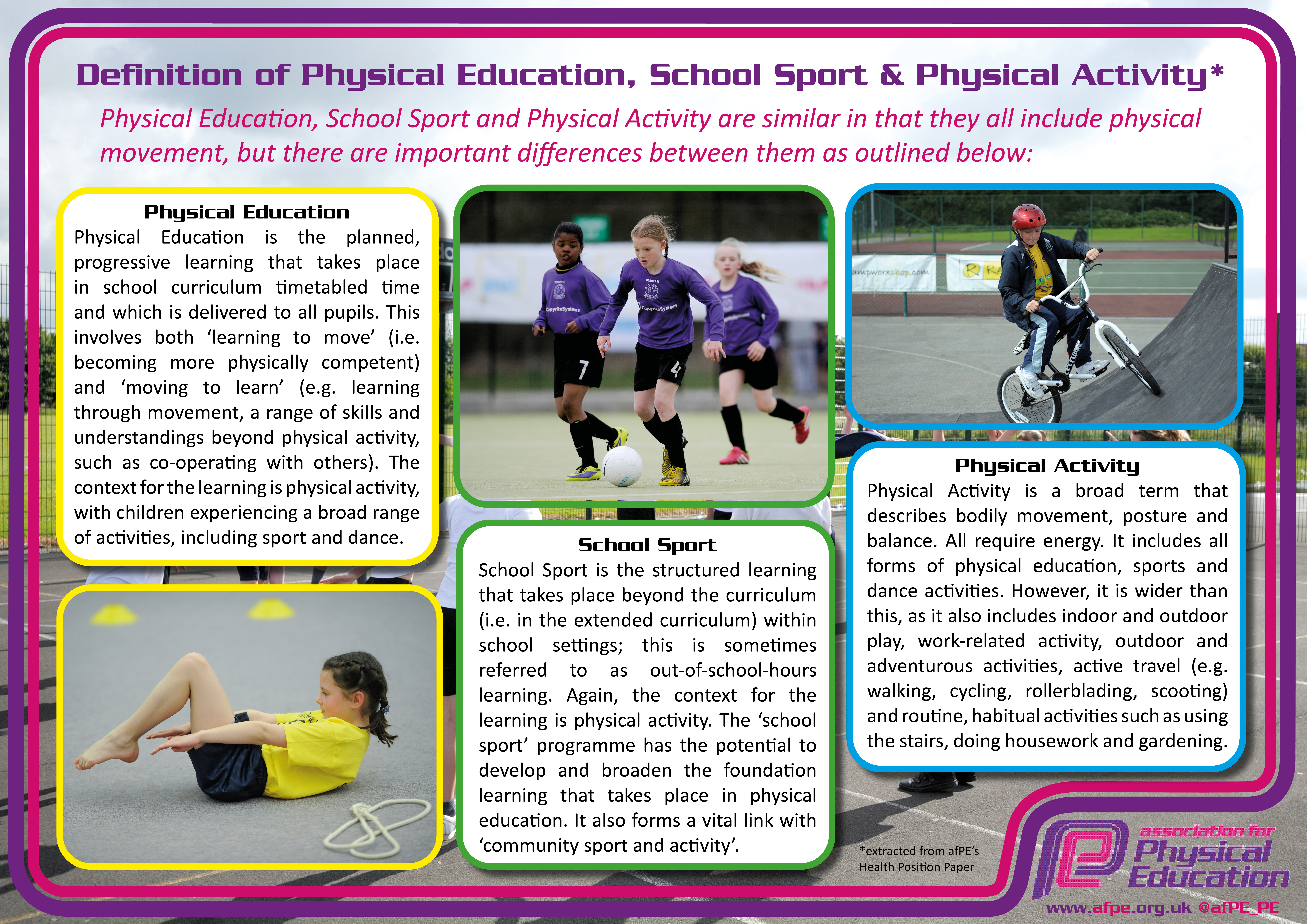 Outcomes of High Quality PESSPA Poster
afPE's Outcomes Poster highlights the difference PESSPA make to the development of well-balanced, responsible individuals. Primary PE and Sport Premium - Five Key Indicators Poster
Schools must use the Primary PE and Sport Premium funding to make additional and sustainable improvements to the quality of PE and sport they offer. There are 5 key indicators that schools should expect to see improvement across. Definitions of PESSPA Poster
Physical Education, School Sport and Physical Activity are similar in that they all include physical movement, but there are important differences between them, as outlined in this poster. 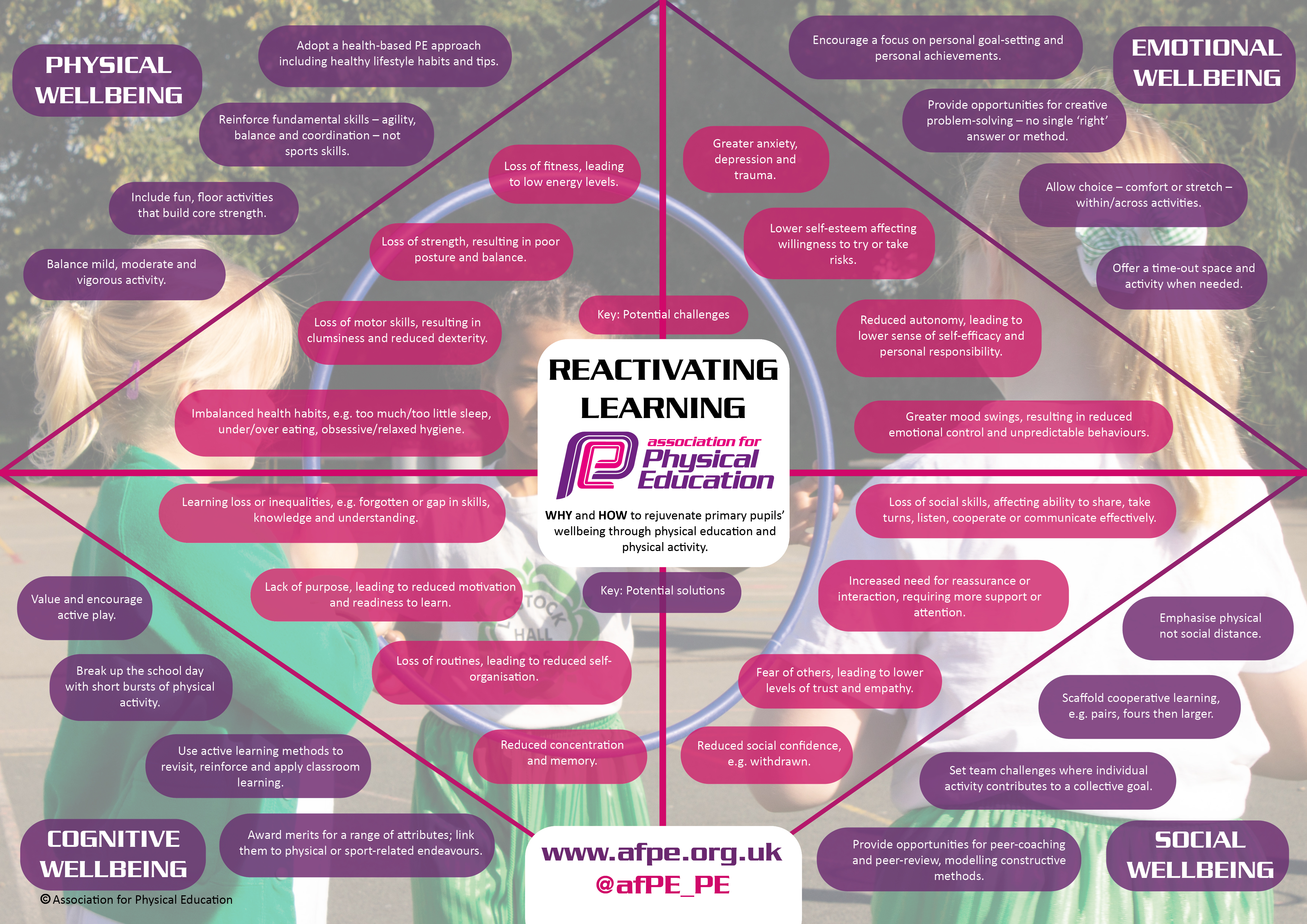 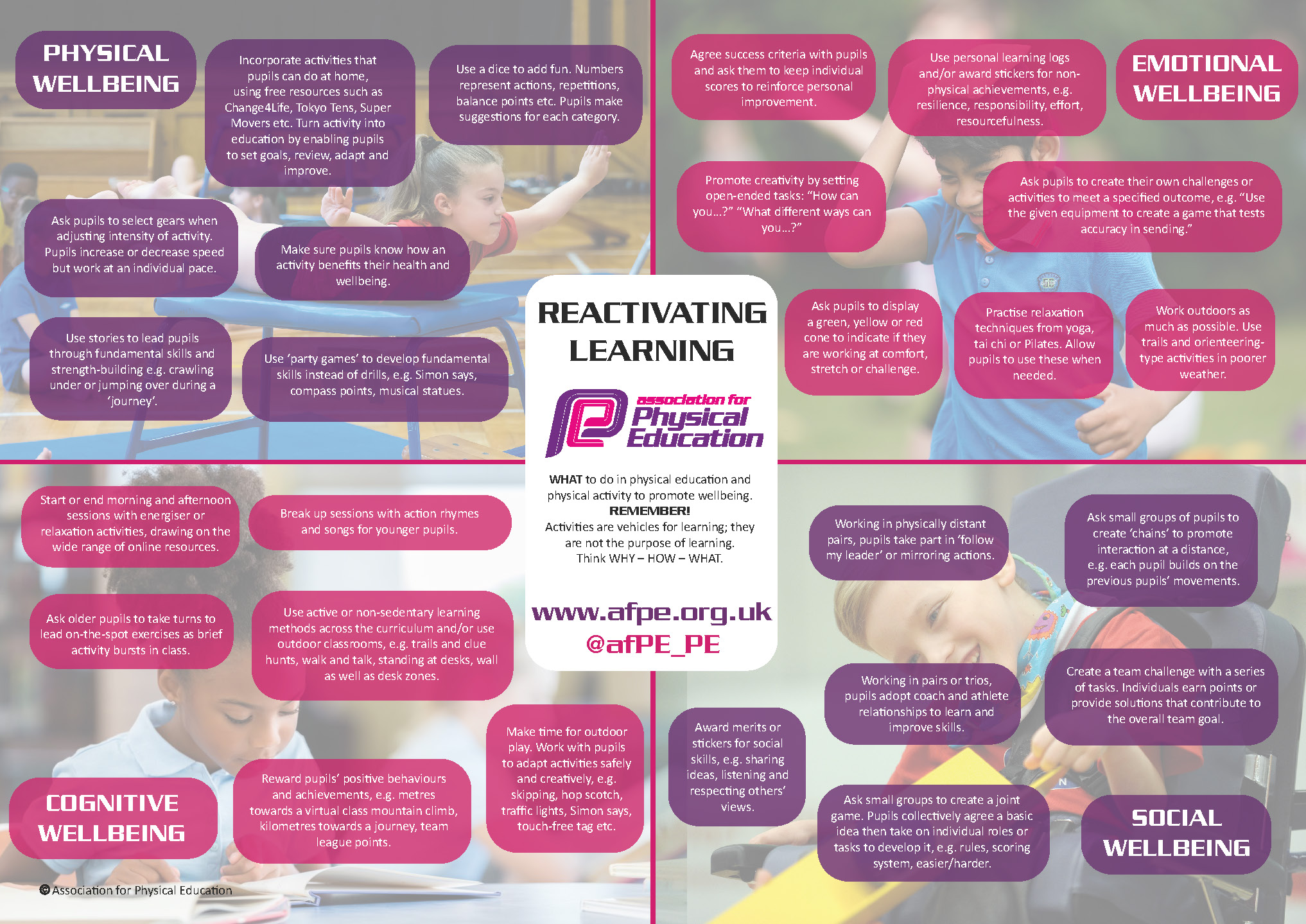 Reactivating Learning Poster - Obverse
WHY and HOW to rejuvenate primary pupils’ wellbeing through physical education and physical activity. Reactivating Learning Poster - Reverse
WHAT to do in physical education and physical activity to promote wellbeing. Activities are vehicles for learning; they Films/Videos:
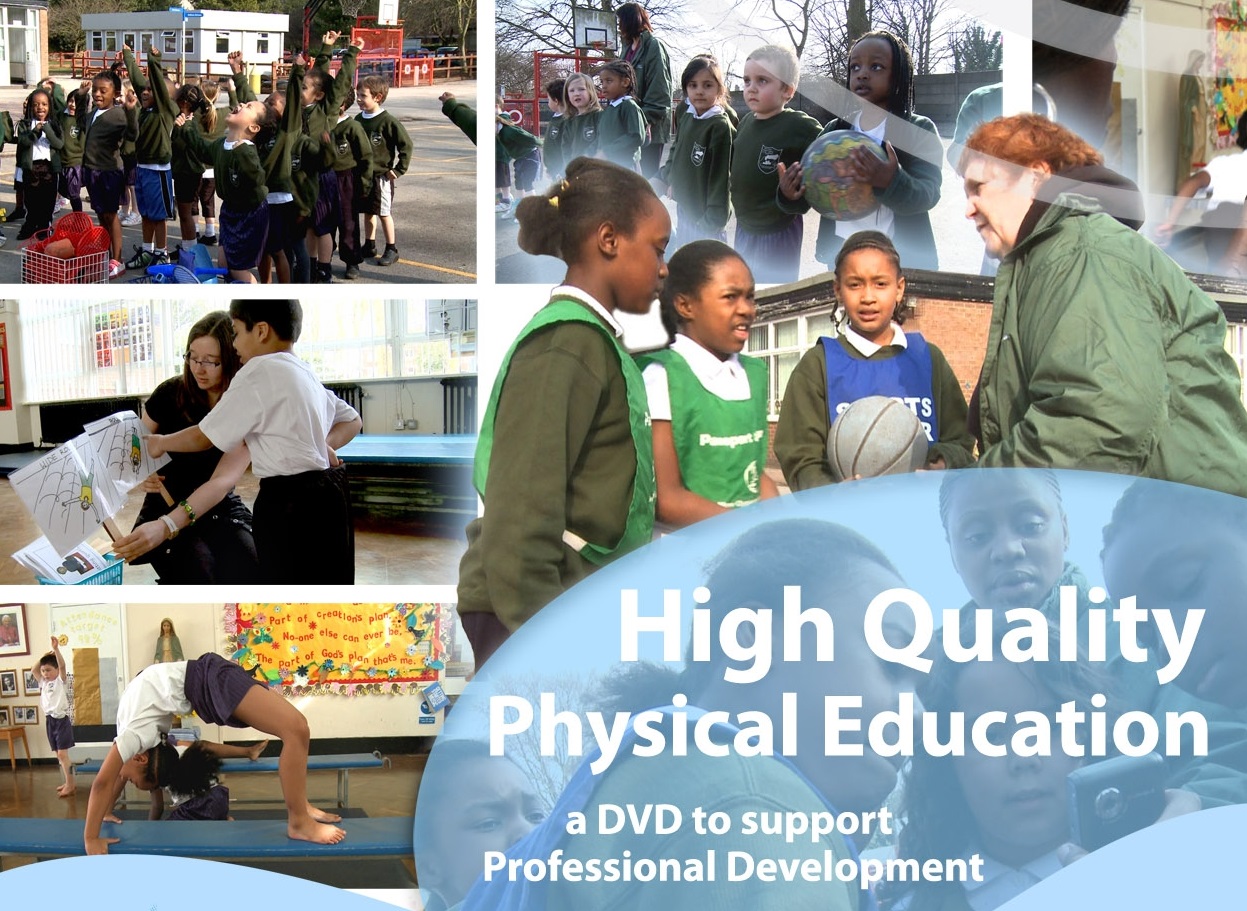 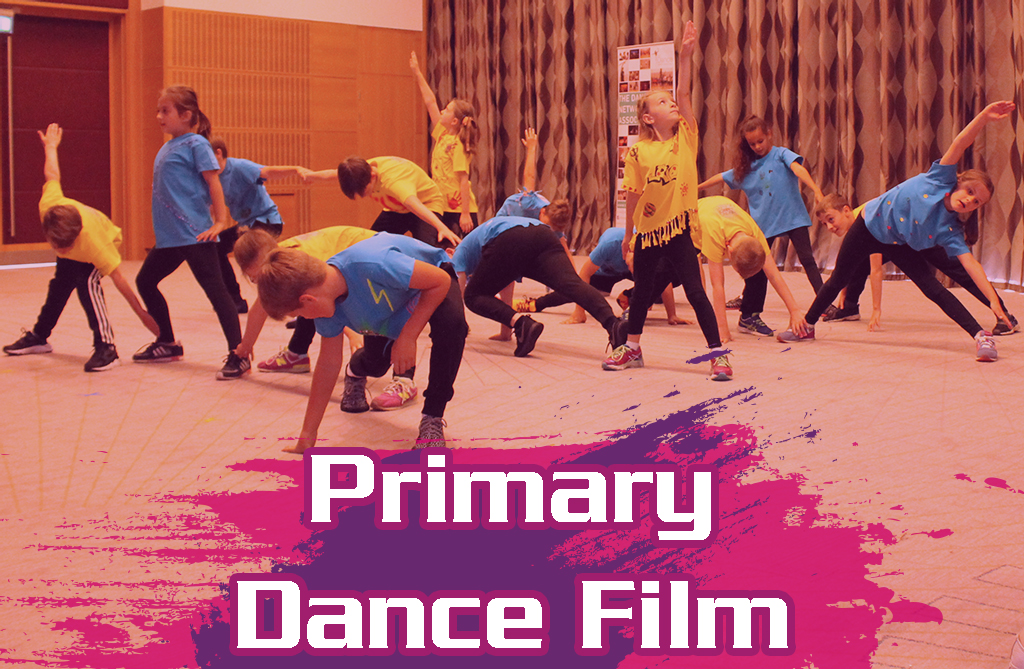 High Quality Physical Education Film
HQPE Primary Dance Film
This film aims to:
This film contains:
|
20/10/2025afPE CEO Kate Thornton-Bousfield statement
02/10/2025Honours nominations 2025
27/02/2026
Early Years Motor Screening Programme
20/03/2026
Early Years Motor Screening Programme